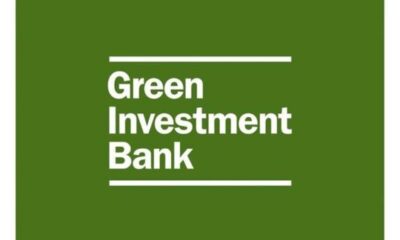

Features
Is green the new black (or simply camouflage for business as usual)?
Peter Michaelis, Head of Equities of the Sustainable Future team at Alliance Trust Investment, asks is green the new black?
This article was originally published in the February 2015 edition of Sustainable Future News.
I have worked in Sustainable Investment for fifteen years. In this time concepts such as stewardship (responsible planning and management of resources), integrating ESG (environmental, social and governance factors), engagement and responsible investment have gained widespread acceptance in the ‘mainstream’ investment community.
Almost all investors are now agreed that these things matter to long-term investment returns. Look at the UNPRI (United Nations-supported Principles for Responsible Investment): nearly 300 asset owners and 900 asset managers have agreed to: ‘incorporate ESG into investment analysis and decision-making processes’. The UNPRI is an international network of investors working together to understand the implications of sustainability for investors and help people incorporate these issues into their investment decisions. Similarly, if you look at the EUROSIF SRI (Sustainable and Responsible Investment) study, this records that €7.1trillion of assets are managed in strategies integrating ESG into their investment; or the fact that 80% of global CEOs ‘….view sustainability as a route to a competitive advantage’.
These would all seem to suggest that the investment community has realised that it was being a little myopic and short term; but that this has now been fixed. It has learnt from the mistakes of the past and investment is a very different game today. So we can all feel happy that the negligence that led to the governance failures of the past decade, won’t happen again.
But is this actually the case? Have these codes, principles and reviews made any fundamental difference to investment practices? Put another way, imagine a fund manager was put to sleep in 2004 and woken up in 2014. Would they notice any major difference in the way the investment world operated? Would they notice investments being held for longer? If they looked at companies, would they notice a greater emphasis on governance and sustainability issues?
Unfortunately, I believe that ‘No’ is the answer to all these questions, in spite of all the commitments made to the contrary.
For, although there are pockets of governance and sustainability research produced, it is still very much the exception. The majority focus, as before, is still on short-term financial analysis.
Take, for example the energy sector. Before BP’s Macondo disaster, which was the largest oil spill in history, there was scant attention paid to safety as a factor worthy of consideration. Then, while the well was spewing out over 4 million barrels of oil 4 into the Gulf of Mexico, there was a period when tables on safety performance were regularly published. However, this is no longer the case. When I look at most research, and indeed company presentations, there is rarely any reference to safety performance. Yet this was a factor, which less than five years ago, wiped 50% off the value of one of the UK’s largest companies and dividend payers. How could a factor be any more material than this?
Nevertheless, while there has not been wholesale change in the industry to back up the fine aspirations of the UNPRI and Stewardship Code; there are a growing number of people looking for asset managers who really are embedding sustainability into the way they manage investments. For these people I suggest asking any prospective asset managers the following questions:
1. Describe the trades driven by ESG factors over the last year
2. Select half a dozen stocks in the portfolio and ask for their view of ESG for each of them
3. Who does the ESG analysis and how are they linked to the investment decisions?
4. If CO2 emissions are taxed/priced/regulated more stringently, what happens to the portfolio?
The answers to these questions should help in assessing which asset managers really have changed over the last ten years and for whom sustainability and responsibility is anything more than a thin veneer.
Peter Michaelis is the Head of Equities, for the Sustainable Future Team at Alliance Trust Investments.Peter has worked in fund management for over 14 years. Before joining Alliance Trust Investments in August 2012, Peter spent 11 years at Aviva Investors where, most recently, he was Head of Sustainable and Responsible Investment.
Further reading:
Integrating water into our investment decisions
Alliance Trust takes to the road to dispel myths around sustainable investment
Launch of Alliance Trust Savings platform for Blue & Green readers


 Environment12 months ago
Environment12 months agoAre Polymer Banknotes: an Eco-Friendly Trend or a Groundswell?

 Features11 months ago
Features11 months agoEco-Friendly Cryptocurrencies: Sustainable Investment Choices

 Features12 months ago
Features12 months agoEco-Friendly Crypto Traders Must Find the Right Exchange

 Energy11 months ago
Energy11 months agoThe Growing Role of Solar Panels in Ireland’s Energy Future






























